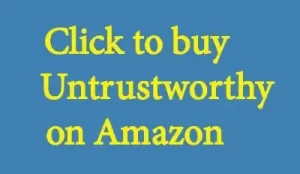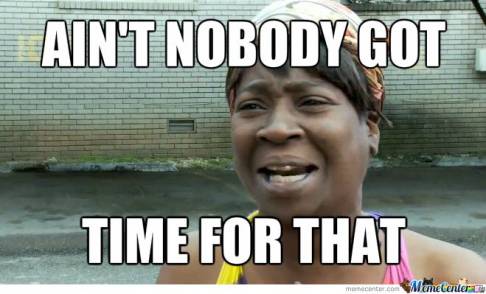I wrote a good chunk of this blog post on Facebook in response to a request to review a rather detailed outline that, unfortunately, seemed to have far too many of the wrong details. And the thought that I kept coming back to was this one: trust your readers.
Why Should You Trust Your Readers?
The idea behind trusting your readership is that you know and acknowledge that they are intelligent. They don’t have to get an infodump about everything and anything that happens in your characters’ lives.
Not every moment is fraught, and not every moment matters.
You know, just like in real life.
How Do You Trust Your Readers?
One easy way you can trust your readers is to not spoon feed them every single little bit. You don’t have to provide explanations for everything. For example, there are some foreign words and phrases that most Americans (assuming your readers are Americans) just know.
Which words and phrases?
These are phrases and words like bonjour, aloha, shalom, déjà vu, mañana, pasta e fagioli, omega, fjord, and carpe diem. Most importantly, these are words that you really do not need to translate for your readers.
But words like shemesh, limpia para brisa, or folgen? You’d better translate them. By the way, in order, that’s Hebrew for sun, Spanish for windshield wiper, and German for follow.
You can help out your readers by adding context, too. That’s still being trusting. But it’s also being practical and helpful. It also helps you maintain the suspension of disbelief, because making your readers run for a dictionary will make disbelief come crashing down, fast.
Hey, Wait a Second!
What about all those people who don’t know the more common foreign words and phrases? Won’t the act of not translating make their suspended disbelief come crashing down?
Well… maybe.
So, consider your ideal reader. If that person is college educated, then don’t bother explaining what aloha means. But if your ideal reader is a preschooler, then explain it, even if your ideal reader’s parent or grandparent reading to them has a college education.
And if your ideal reader is somewhere in the middle, then use your best judgment. And no matter what, remember that context is your best friend.
So, if your main character is served a dish of prosciutto, and they say, “Ugh, I keep kosher. I won’t eat ham, not even this fancy Italian ham,” then your readers are covered.
You can trust your readers to be smart, and able to follow context.
Here’s an Exercise in Trust
Do yourself an enormous favor, and watch one (or all of them, if you like) of the following classic films.
I’m suggesting older classic films—even though storytelling has changed a bit, and writing for films isn’t identical to writing a book, but it’s close enough for this particular purpose, because they’re often easier to find on cable or streaming or the like:
† The Wizard of Oz
• It’s a Wonderful Life
† The Andromeda Strain (the older one from the 70s, not the remake)
There’s nearly nothing, if anything, about these characters’ ordinary lives. Rather, the films mainly start off with a very short normal scene, but then chaos is introduced very quickly.
Dorothy is in gray Kansas, bored, wondering if there’s something more out there. George Bailey is on a bridge, considering jumping. Military personnel in hazmat suits discover a town where almost everyone has mysteriously died.
Nobody returns a library book. No one lingers over a meal unless something important is being said. No one’s morning ritual makes it to the screen.
An Idea to Make Sure You Trust Your Readers and Write Accordingly
Consider your writing and your chapters like your budget. Chapter 1 costs some amount, the next chapter costs something, etc. It’s as if, in order to get someone to pay attention, you literally have to ‘pay’ something.
Are you with me so far?
Your budget is limited, and you only have enough to get to Chapter 6 or so. However, you can economize (like getting a coupon) when you cut out the fluff.
Chapter 1 will always ‘cost’ the most because it’s the first chapter. Chapters 2 and 3 are also costly but not as much as Chapter 1.
Your final chapter is also fairly costly, and your penultimate chapter is more than for an average chapter, but not really in the same league as Chapters 2 and 3 and your final chapter.
Save on your ‘budget’ by eliminating the regular, day to day, ho-hum stuff that everyone does, unless you can justify it somehow.
If the return of a library book comes with an important conversation that will solve the mystery or lay the groundwork for the romance (or whatever your genre and main plot are), then by all means keep it!
But in that case, keep in mind that the conversation is the part that goes front and center, not the drive or walk to the library itself.
Every time you knock out a dull, pedestrian scene, you can think of it as ‘paying for’ another chapter. You need to make and keep your story something worthwhile for people to want to spend their time on. And, real money, if you plan to sell your work.
If this analogy doesn’t work for you, then consider this.
Real Life Isn’t Like This
No doubt you see people in your life who you don’t live with. In fact, you see them all the time. Classmates, coworkers, people at a gym or a market, folks at a house of worship or club or a park or whatever.
How did those people get up in the morning? Most likely, they brushed their teeth, maybe ate something, washed their faces, possibly showered or bathed, and they put on clothes.
You did not see them do these things. Yet you know they did all or most of the things I just mentioned. You did not need to witness those things, to know they happened.
Your readers don’t have to witness those actions, either. And, truth be told, they probably do not care about those things too terribly much, and they probably don’t think of them much, if at all.
Trust your readers to understand that every bit of this has happened, unless the method is somehow important or things didn’t happen as they normally do, and that matters to the overall plot.
Your readers are smart enough to understand these things happened. You will never have to tell them.
And if you ever try to, don’t be in shock if they behave as if you’re insulting their intelligence. Because, spoiler alert, you are.
Trust Your Readers — Takeaways
Being trusting means you can scrap the unnecessary scenes unless you lace them with meaningful dialogue or interactions or the like. A drive to the library can be important if the main character gets into a crash, or comes out to someone, etc.
But it’s the other stuff that’s vital. The window dressing could be anything.
If you ever wonder if you’re not trusting enough, consider what happens if you replace a scene with something else. If you can move the story along with a walk in the park versus a drive to the library, then your book return scene can probably be scrapped.
But keep the important conversation or the like.
Trust your readers’ intelligence.
And trust your readers, full stop.











You must be logged in to post a comment.